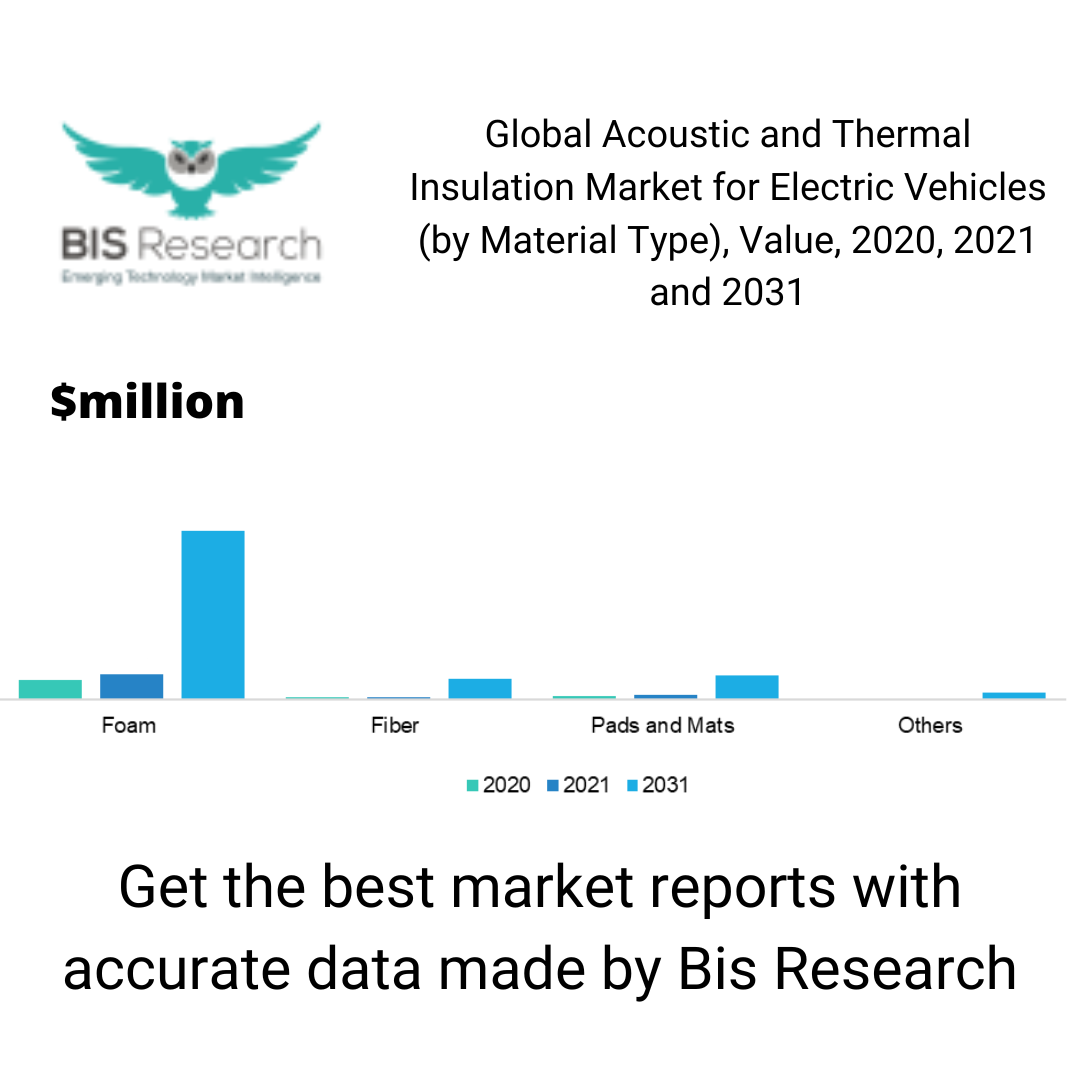Engaging the battery system for thermal comfort can, in turn, also affect the driving range and performance of an electric vehicle. This raises the need for adequate thermal insulation in electric vehicles. Enhanced thermal insulation is also needed to protect the battery pack in extreme weathers, as the battery can lose its efficiency if its temperature is not maintained while driving.
Unlike in IC engine vehicles, electric batteries emit much less waste heat that can be used to heat the passenger cabins. Additionally, there is also a lack of power source for the compressor system in an electric vehicle, as earlier it was linked directly with the IC engine. HVAC systems in an EV are needed to be powered electrically and hence derive power from the battery system in the vehicle.
The global acoustic and thermal insulation industry for electric vehicles has been segmented into material type, application type, and propulsion type. This research also analyzes the adoption of electric vehicle insulation materials in different regions and countries.
Acoustic and Thermal Insulation Industry for Electric Vehicles Industry Overview: The global acoustic and thermal insulation industry for electric vehicles, along with the summary of different segmentations, are covered in this research study. The global acoustic and thermal insulation industry for electric vehicles was valued at $134.4 million in 2020 and is projected to reach $1,108.4 million by 2031, registering a CAGR of 20.45% during the period 2021-2031.
Some of the major key players of the Acoustic and Thermal Insulation Industry are: ADDEV Materials, Adler Pelzer Holding GmbH, Armacell International S.A., Autoneum, CYG Tefa, INOAC Corporation, Morgan Advanced Materials plc, Pritex Limited, Shanghai Xinan Automobile Sound-Insulation Felt Co., Ltd., Sika Automotive AG, Sumitomo Riko Company Limited, Tecman Speciality Materials Ltd, Toyota Boshoku Corporation, Unifrax, Zotefoams plc.
Key questions answered in the Report:
• What are the key drivers and challenges for players in the acoustic and thermal insulation industry for electric vehicles? • How does the supply chain function in the acoustic and thermal insulation industry for electric vehicles? • Which material type segment is expected to witness the maximum growth in the acoustic and thermal insulation industry for electric vehicles during 2021-2031? • Which are the key application areas from which different acoustic and thermal insulation materials experienced high demand during the forecast period, 2021-2031? • Which are the players that are catering to the demand for different acoustic and thermal insulation materials? • What are the strategies adopted by market players involved in the acoustic and thermal insulation industry for electric vehicles? • What are the key offerings of the prominent companies in the market for acoustic and thermal insulation for electric vehicles?
• Which regions and countries are leading in terms of consumption of acoustic and thermal insulation industry for electric vehicles, and which of them are expected to witness high demand growth during 2021-2031?
• How is the market landscape for insulation material manufacturers expected to be formed for electric vehicles? • What are the consumption patterns of acoustic and thermal insulation materials across different types of electric vehicles during the period 2021-2031? • What has been the impact of COVID-19 on the acoustic and thermal insulation industry for electric vehicles?
Download the sample of the acoustic and thermal insulation report for free:
0







